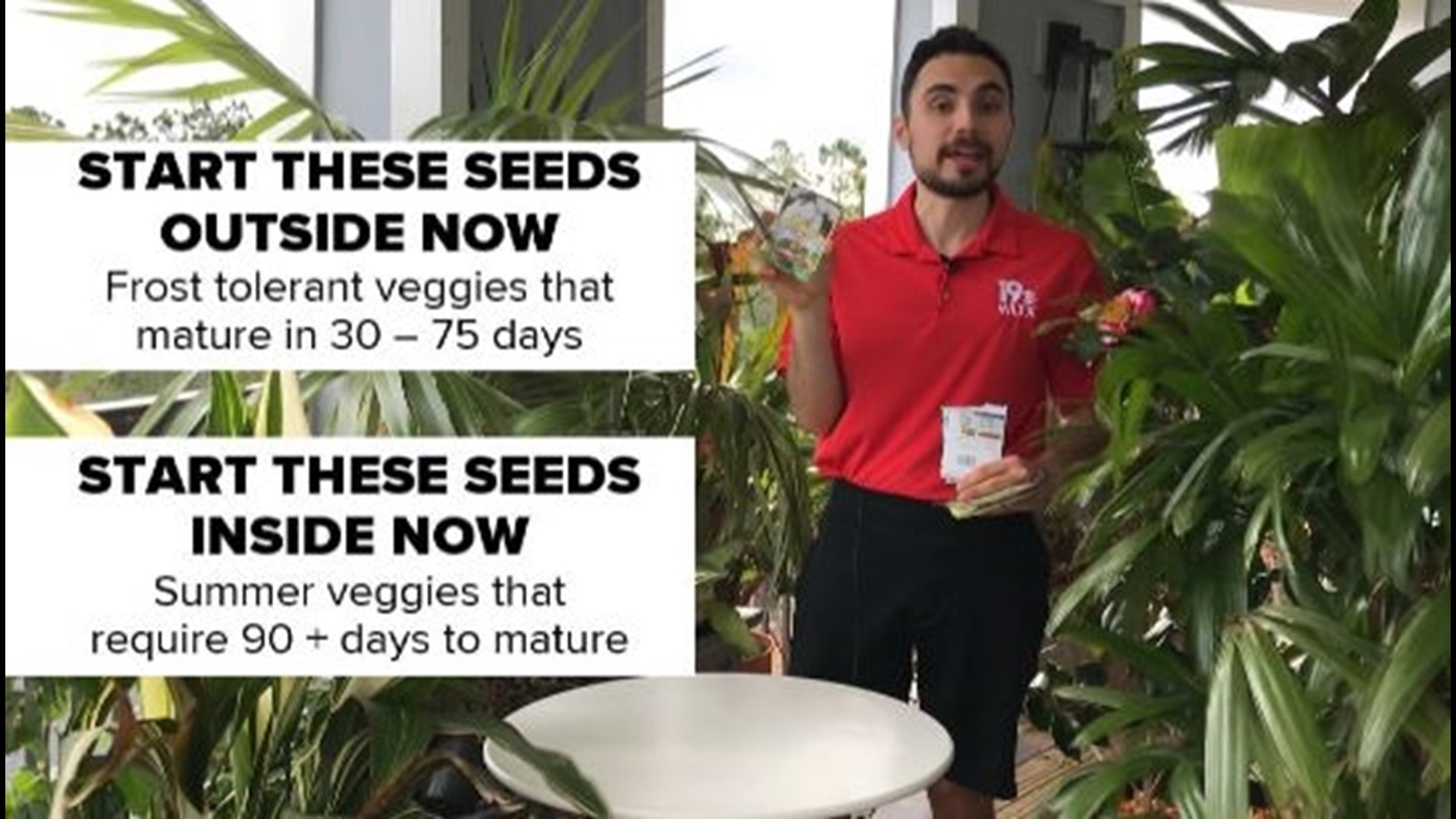COLUMBIA, S.C. — February is the perfect time to purchase seeds and start thinking about the spring and summer garden. Success doesn’t require a green thumb – if gardeners plan ahead. Some plants perform best in cooler weather and can be started outside in February (despite frequent freezes). Ironically, warm weather plants need to be started in February too, so they’re ready to produce by early summer – but these seedlings have to grow inside until temperatures warm up.
In Gandy’s Garden this winter, directly from seed
There’s a great selection of frost-tolerant produce that will thrive in the winter garden. This season at WLTX, we’re growing arugula, lettuce, snow peas, and spinach from seeds. Gardeners can plant frost-tolerant produce a few weeks before the last frost for a winter crop, or plant the seeds in late winter for a crop during the spring. The weather in the South Carolina Midlands is rarely cold enough to damage winter produce (temperatures need to drop below 20F for any significant issues to come up).
Gardeners in South Carolina can technically start frost-tolerant plants from seed from late Fall through the winter because the ground here rarely freezes; however, a long stretch of chilly temperatures will limit growth. Most cool season produce have an estimated 30-60 days to full maturity from when they sprout, but cooler weather can keep them from reaching maturity as quickly.
Despite the cold, I’ve started seeds in mid-winter with success. In early January 2020, I grew broccoli and spinach from seeds sown directly into the ground. They sprouted during a warm spell, but then sat tight until spring arrived in late February. We picked that broccoli in May and had plenty of spinach as well.
This past December, I planted arugula seeds and onion bulbs during a stretch of near record warm temperatures (in the 70s and 80s). Both plants quickly sprouted, but just like my experience in 2020, cooler weather in January 2022 limited additional growth. They had no issues during several snow storms and temperatures down to 19F, and they are positioned to take off as soon as warm weather arrives.
During the first weekend of February, I planted snow peas, lettuce seeds, and spinach directly into the ground. Average temperatures in mid-February are in the low 60s and in a month the average temperatures in the Midlands are in the low 70s. These is ideal growing temperatures for cool season produce, and that’s why cool season winter greens started in early February will grow quickly.
RELATED: Late February Gardening in the South
Thinking about the summer garden already?
Winter is ideal for garden projects that require a lot of time outdoors. The cooler temperatures are perfect for many shrubs and trees to be transplanted in because they’re dormant and will lose less water. There’s also fewer bugs and weeds, which makes the whole garden experience a lot more comfortable.
However, sometimes early planning can lead to falling behind. Starting fast-growing plants indoors like squash, tomatoes, okra, or watermelon is a waste of time without the right set up, or at least some dedication. These plants require a lot more sunlight to grow strong and healthy than can be provided indoors, and they are attractive to pests like spider mites and mealy bugs if they spend too much time inside.
Some gardeners have success by either bringing these plants outdoors on warm days to experience natural sunlight, or by using grow lights. I like to start these plants in pots in early to mid-March. It’s warm enough in South Carolina to keep them outside on most days by that time, and they’re easy to move inside during frosty mornings. This gives them a few weeks head start to spring. They’ll be the perfect size to transplant in the garden in April without the complications of keeping them inside for too long. I make an exception for plants like eggplants and any other produce that requires 90+ days to germinate. These plants are better to start earlier because they require a few months of growth before they’re old enough to produce fruit.

